Every day, WHO teams take long journeys to reach vulnerable communities living in remote or hard-to-reach areas of the country and respond to urgent health needs, including outbreaks and natural disasters.
From the early stage of the pandemic, nearly 100 WHO drivers have been supporting COVID-19 response around the country, being frontline responders, ensuring humanitarian aid delivery, including life-saving medical supplies and equipment. They help WHO drive change, every day, every ride. In doing so, they are very much exposed to the hardships faced by all humanitarians.
On World Humanitarian Day, we celebrate real-life heroes, people who with hard work and dedication make possible the continuation of WHO’s services in the field amidst great challenges.
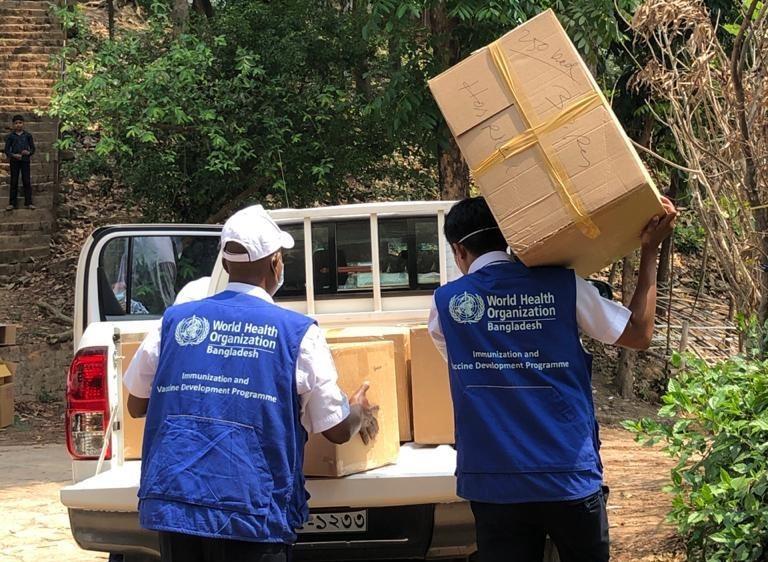
WHO Drivers Transporting COVID-19 supplies in Chattogram Division. Photo by WHO / Imong Chowdhury
Masud Alom, who works in Habiganj District, is one of the many WHO drivers who have been reassigned from their regular duties to support WHO's response to COVID-19, especially to transport essential supplies and equipment to health facilities.
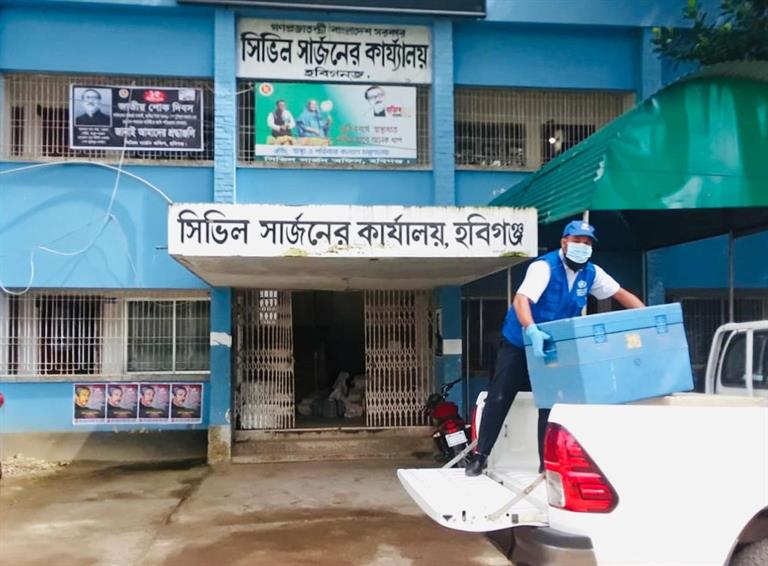
Masud transporting COVID-19 samples to Civil Surgeon’s office in Habiganj District. Photo by Jobayer Ahmed
"I am not a doctor but I know that with every box of medicines that I transport, with every medical officer that I bring into a remote area, I am contributing to saving lives, to helping doctors doing their job safely and with adequate supplies." says Masud.
In Cox's Bazar, Jumur Karmakar took on a very meaningful pickup, to transport the samples of COVID-19 suspect patients from 20 health facilities to the IEDCR field laboratory in Cox's Bazar Medical College. His work helps WHO to ensure timely detection of positive cases from Rohingya population and host communities.
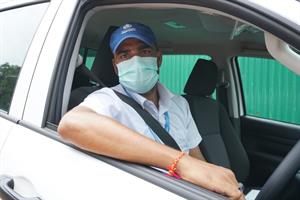
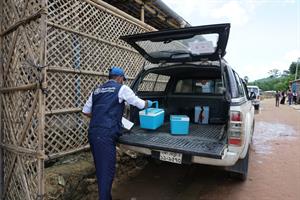
Jumur Karmakar, WHO driver, arriving at IOM Health Facility in Teknaf to collect samples for COVID-19 testing. Photo by WHO/Tatiana Almeida
As in the case of many other frontline workers serving in emergency settings, their dedication comes with great personal sacrifices.
"I haven't seen my wife and 2-year-old son for several months now, I miss them. I am also worried for them, as my wife says that not everyone in our city is wearing a mask", tells Jumur.
Being frontline responders during the COVID-19 outbreak, the concern of drivers for infection prevention safety measures is much greater for passengers than for themselves only. They are now responsible for the protection from COVID-19 for all the passengers they transport and this implies a great responsibility for everyone's safety.
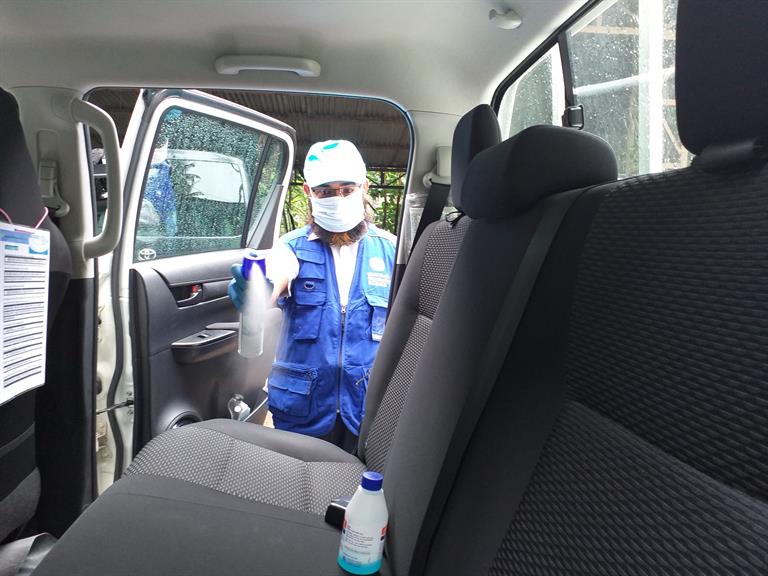
Faruk Hosain, WHO driver in Barishal District disinfecting the car. Photo by WHO/ Md. Alamgir Hossain
"We thoroughly disinfect the cars every day and in between the passengers. We also ensure that all the people we transport follow the prevention rules. Wearing mask and frequently using hand sanitizer is part of our new routine and we are responsible that everyone inside the car follows the same rules." says Md. Faruk Hossain, WHO driver in Barishal District.
When responding to natural disasters such as cyclones, landslides or floods, WHO drivers always find their ways to where WHO is needed, overcoming challenges and the unexpected.
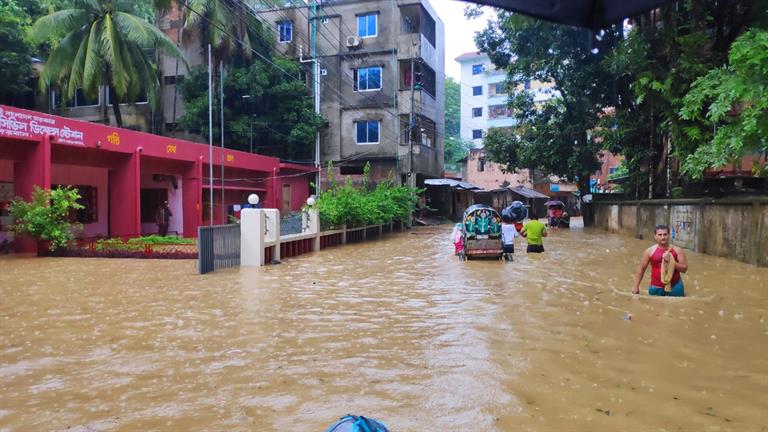
Floods in Chattogram Division, July 2019. WHO drivers ensured transportation of supplies and medicines. Photo WHO Bangladesh
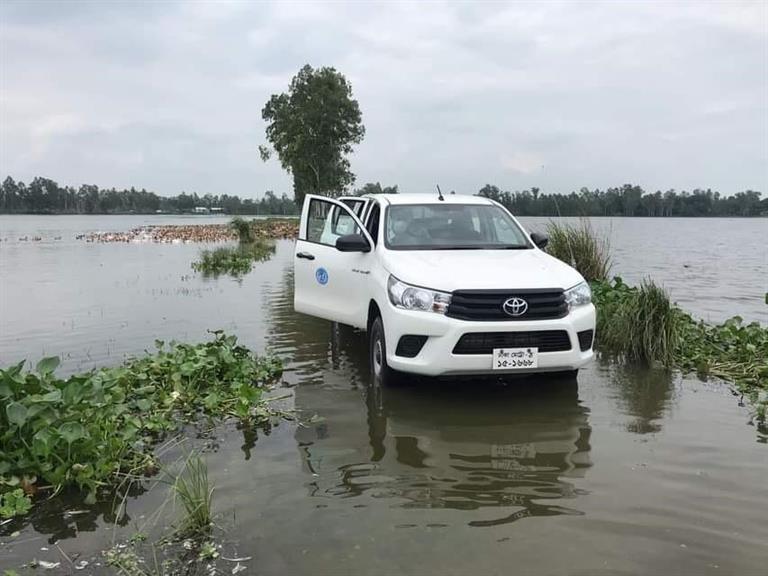
Crossing flooded road on the way to vaccination center in Chapainawabganj district. Photo by WHO / Mahmudul Hasan Faisal
"Sometimes the roads are inundated due to floods or mud so it is very difficult to navigate. But I know that at my destination there are people in need of what I am transporting and that pushes me to find solutions, to find alternative routes, to get there on time." says Md Al Helal, WHO driver in Rajshahi Division.
"COVID-19 has posed many challenges to everyone, everywhere in the world. In Bangladesh, WHO drivers have been the backbone of life-saving supply distribution chain within the country and they play a key role in our efforts to distribute equipment, supplies and essential medicines as well as to transport COVID-19 samples of suspected patients. They are real-life heroes and I thank them for their extraordinary service", says Dr Bardan Jung Rana, WHO Representative in Bangladesh.
